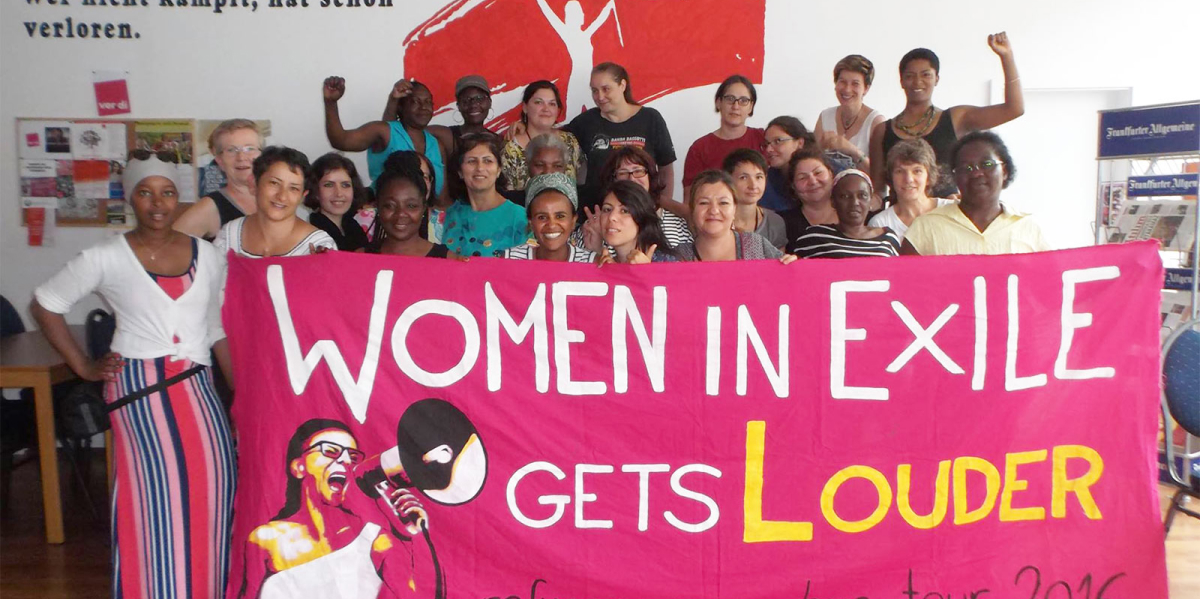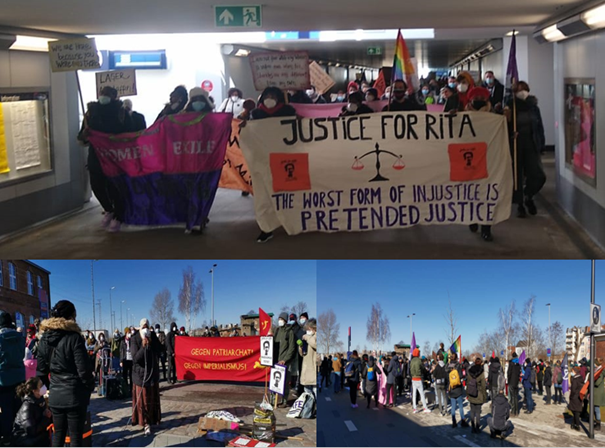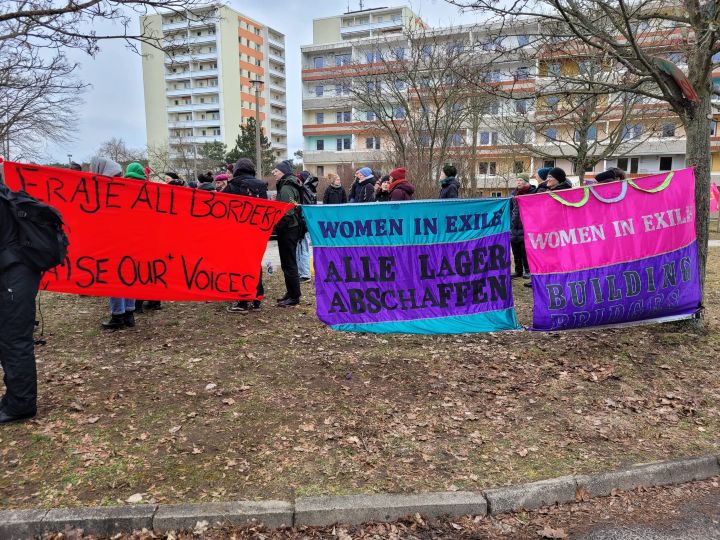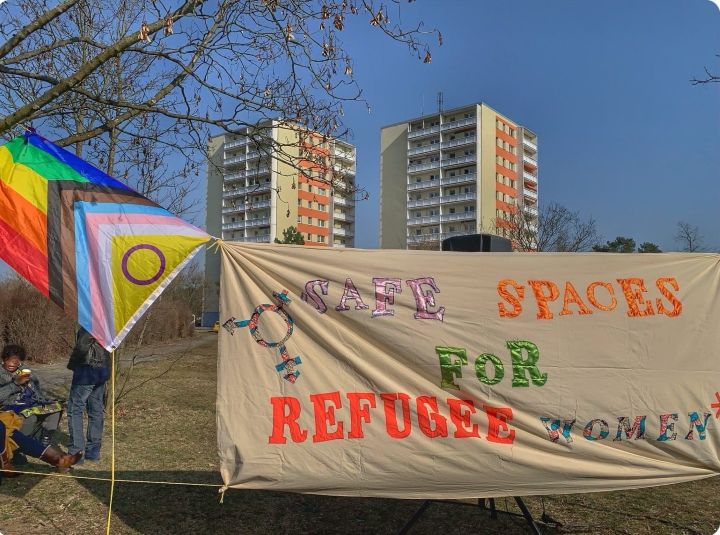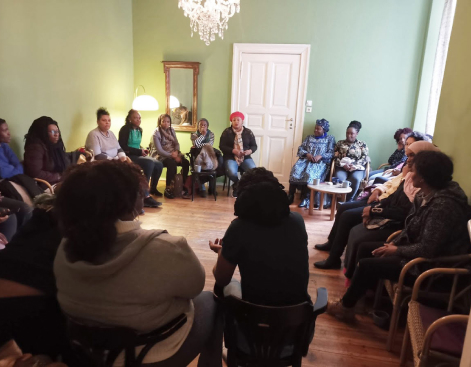The action in Horst can be viewed in this video; Mahnwachen Nostorf-Horst – Google Drive
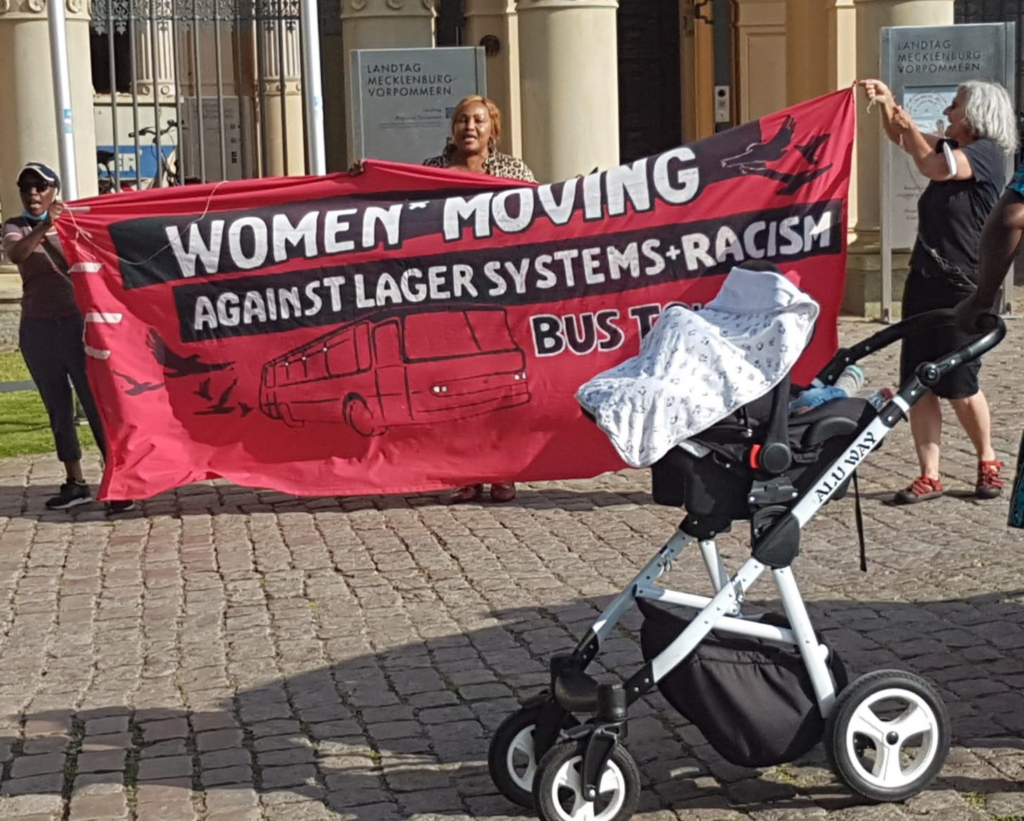
On the 25.07. our bus tour stopped at Horst in Mecklenburg-Vorpommern. Horst is a refugee receiving centre in Mecklenburg-Vorpommern. Some women from „Nina – women in action Hamburg“, where we had spent the last four days of our tour, accommpanied us. The camp is nearer to Hamburg then to Schwerin, the administrative city of Mecklenburg-Vorpommern. Horst is a first receiving centre which is situated in the middle of the woods with no neighbours in sight.
The nearest city from this camp is 7 kilometres. The refugees were moved here after the pogrom which happened 29 years ago in Rostock-Lichtenhagen. The state gave in to the right-wing radical and racist attacks, or rather met their direction: Instead of working against the fascism and racism in Rostock-Lichtenhagen, we should leave, live in isolation and the asylum law was massively tightened. This new camp is now nearly 30 years old, with no improvement. And the „Asylkompromiss“ and „Asylgesetz“ were made, as we know it today. Goal of them was to discourage refugees coming to Germany. A law which put the discriminative and racist everyday practices into structural form.
We made a workshop with the refugee women living in the camp in Horst: “From personal problems to political action”. From the women we found out of the mistreatment and racism they face from inside and outside. Many of them are traumatised and we learned one of them attempted suicide, two weeks before. The police took her away and since then the others have not seen her and do not know of whether, she is dead or alive. Some two mothers who have small babies are forced to share a small room. They claim, some rooms are free. But when they ask to be seperated the Malteser staff refuse to allocate them a room. One young woman complained about being given too little food and when she goes for a second helping, the staff treat her badly and insult her. This shows how profit oriented the companies are running these camps. They do not care about the people living inside.
There are two first receiving centres in the state of Mecklenburg-Vorpommern and many of the camps are run by the Malteser. Stories of racism from their staff is narrated by many of the refugees we met, even those who have moved from Mecklenburg-Vorpommern to other cities, such as Hamburg or Berlin. There is another problem: Refugees in Horst camp cannot go to the next city, which is Lauenburg because it is not in their Landkreis and there they have residence obligation – a relict from colonial times. Instead of the closer city Lauenburg, the refugees have to go to Boizenburg, which is 7 kilometres away. This shows the structural colonial racism in the accommodation of refugees. With laws from colonial times, they are not only meant to be isolated, but also absolutely cut from the society.
One woman, who left the camps six months ago and was helping with Farsi translation told us about her experience inside. She narrated of her embarrasment, when one worker entered her room without knocking while she was naked. After the workshop, we wrote posters with demands from the women to the authorities and made a rally in front of the camp. The posters were to publicly let the authorities know that, what they have been ignoring from the women, for example:
-staff from Malteser entering the rooms without knocking
-women with babies sharing one room
-no privacy because many family members have to share one room
-lack of respect for the privacy for the women
-food not being enough even for the children
-those wanting food for a second helping are refused and are treated badly;
